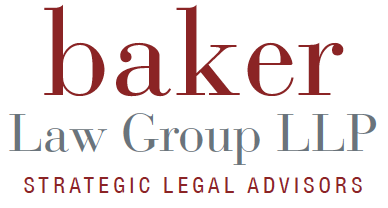You’re Expecting: Know Your Rights as a Mom-To-Be
Whether you are first time mother, or a master at raising kids, being pregnant is an exciting and uncertain time. As you are preparing for the arrival of your child, settle your worries by knowing your pregnancy leave rights and ensuring your employment is protected while you are away.
While you are planning for pregnancy leave, consider the following: How much leave is available to you? When can leave be taken? What reinstatement rights apply? What type of pay is provided during leave? Some of these questions can be answered through California law and some are decided by your employer.
California employees are protected by three laws for their leave when pregnant and after giving birth. These laws are California’s Pregnancy Disability Leave Law (PDLL), The California Family Rights Act (CFRA), and Federal Family and Medical Leave Act (FMLA).
So, which laws apply to you, and what do they offer?
Pregnancy Disability Leave Law
The law that is often referred to first is California’s Pregnancy Disability Leave Law (PDLL). PDLL applies to most employees and provides the best job protection. If you work at a company with at least five employees, PDLL applies to you. This law protects you starting on your first day of employment, whether you are full or part-time. PDLL requires that employers must reasonably accommodate any pregnancy related disabilities and allows for up to four months of pregnancy disability leave. PDLL falls within the California Fair Employment and Housing Act (FEHA) and therefore requires allowance of extended reasonable pregnancy disability leave unless the extension would cause undue hardship on the employer.
California Family Rights Act
An additional protection is the California Family Rights Act (CFRA). CFRA applies in more limited circumstances and affects companies of 50 employees or more. In order to qualify for CFRA, you must have been hired at least 12 months prior and worked at least 1,250 hours of work during that time. CFRA is bonding leave and will not eliminate your access to PDLL. With CFRA, you are provided with 12 additional work weeks of leave that can be taken at any time. CFRA and PDLL protection cannot be used concurrently.
Federal Family and Medical Leave Act
Finally, Federal Family and Medical Leave Act (FMLA) is a federal law and is not as protective as PDLL and CFRA. FMLA is only required of companies that employ at least 50 employees. Just like CFRA, you must have worked 12 months and at least 1,250 hours in order to for it to be available. However, FMLA provides protection for serious health conditions related to pregnancy for 12 weeks. FMLA runs concurrently with CFRA.
Simply understanding how you are protected through California’s laws is not enough to be fully prepared and confident in your leave. You should also speak with your employer to understand company-specific pregnancy leave policies. The California laws do not entitle you to your continued salary during leave unless your employer also provides paid leave to other temporarily disabled employees. Work directly with your supervisor or the human resources department to learn about your company’s policy on pregnancy leave.
Expecting is stressful enough, don’t let work leave add to it. If you have any concerns about your workplace policies, how you have been treated as a pregnant woman, or anything regarding workplace pregnancy leave, reach out to us today.



